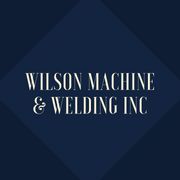
In manufacturing and related fields, situations can arise in which the blueprints for specialized parts become lost, obsolete, or otherwise unusable. In these cases, it may seem that your only option is to re-equip your facility or to invest in costly new machinery. However, it may be possible to avoid unnecessary expenses with the help of a fabrication specialist experienced in reverse engineering. To understand what this process involves, have a look at the guide below.
What Is Reverse Engineering?
In simple terms, reverse engineering is the process of disassembling and analyzing the functions of a piece of machinery. Unlike the production of new devices and parts, this process begins with the finished product and moves backward. Machinists record details such as measurements and dimensions, types of materials used, functions, and the number and description of components. This knowledge can then be used to produce new designs to continue production of the part in question.
What Steps Are There in the Reverse Engineering Process?

Reverse engineering begins when a part or piece of equipment is handed over to an engineer for analysis. They’ll carefully deconstruct the item, taking extensive notes as they work, and often using several examples of the device in question for added accuracy.
Traditionally, this aspect of reverse engineering was done by hand, but today, 3D scanners can achieve the same result accurately and without risking damage to the device in question. This can be particularly useful for decayed, corroded, or otherwise severely damaged parts which may be too fragile to handle safely.
After all of the relevant information has been recorded, technicians can create schematic drawings with computer-aided design (CAD) software. These digital representations further increase the knowledge base of a part’s features and functions. The finished analysis and models can then be passed on to a fabrication team for production and delivery.
If you’re interested in maintaining uninterrupted operations through reverse engineering, get in touch with Wilson Machine & Welding. Located in Cordova, AL, and serving clients throughout Decatur, Hillsboro, and Birmingham since 1972, this trusted fabrication and machine shop uses the latest design and modeling technology to produce precise reproductions of specialized parts and equipment for companies in a wide array of industries. Visit their website to ask questions about their approach and capabilities, and call (205) 648-3203 to speak with a representative.
About the Business
Have a question? Ask the experts!
Send your question

